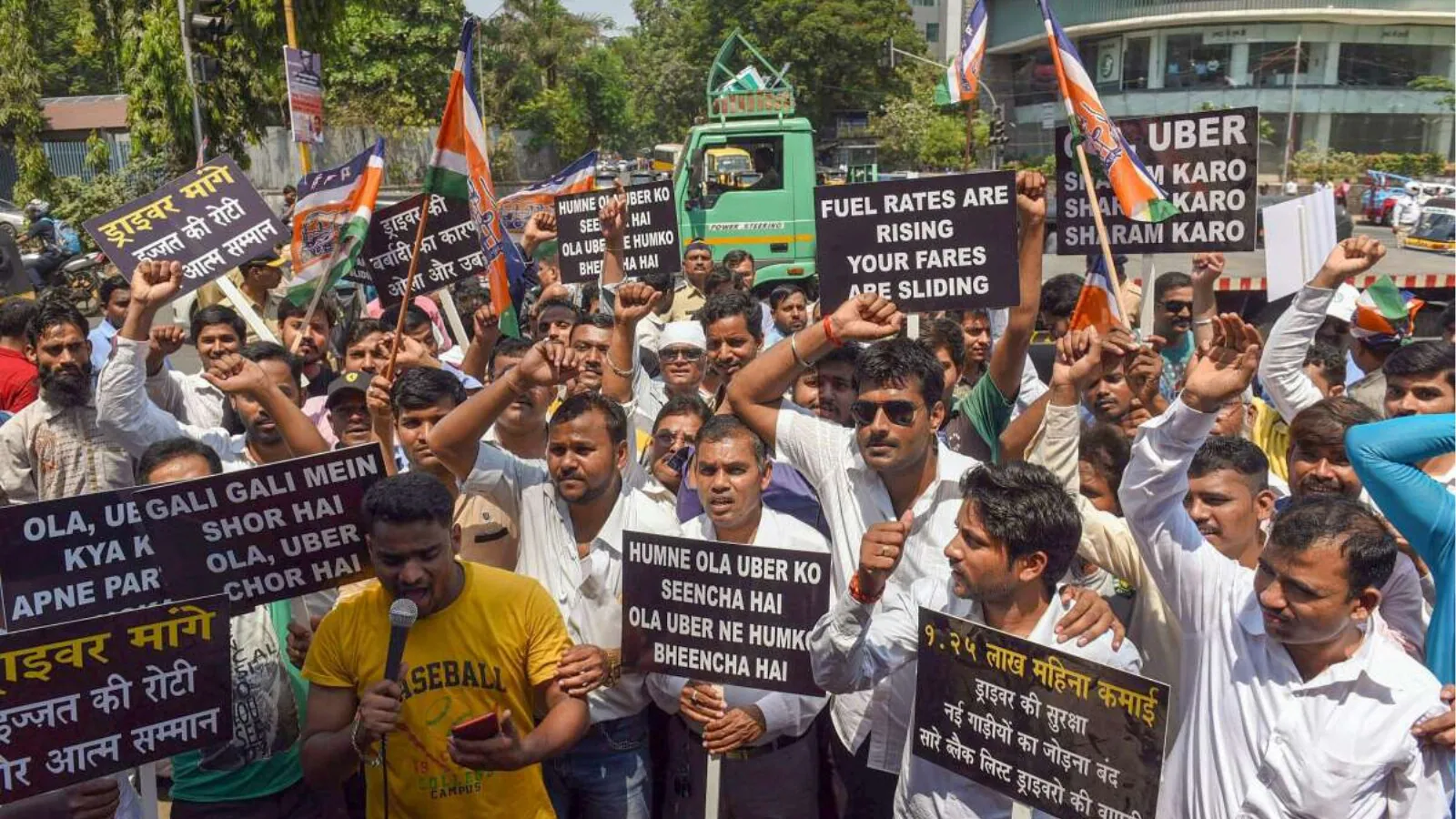As Mumbai enters the fifth day of a major disruption in transportation, thousands of cab drivers affiliated with app-based platforms like Ola, Uber, and Rapido continue their indefinite strike. The protest, which began on July 15, has not only paralysed daily commuting in the city but has also spread to Pune and Nagpur, with support growing from autorickshaw unions expected to join soon.
On Friday, drivers escalated the agitation with a large sit-in protest at Azad Maidan in South Mumbai. According to Dr. K.N. Kshirsagar, President of the Maharashtra Gig Kamgar Manch, the decision was taken as there had been “no deliberations with the government” since their last meeting with Transport Minister Pratap Sarnaik earlier in the week.
“The cabbies will sit on a protest at Azad Maidan in south Mumbai from Friday to further intensify their agitation,” Dr. Kshirsagar told PTI.
The strike is spearheaded by unions including the Indian Gig Workers Front, Maharashtra Gig Kamgar Manch, and Maharashtra Rajya Rashtriya Kamgar Sangh. These organisations are demanding fair wages, stronger regulations, and improved working conditions for gig workers who they say are exploited by current aggregator models.
Crippling Costs and Shrinking Pay
At the heart of the protest is a growing frustration over poor earnings. Drivers claim that after deducting platform commissions, fuel prices, and vehicle maintenance, their net income drops to as low as Rs 8 to Rs 12 per kilometre—a rate that has become unlivable amid inflation and rising operational costs.
In addition, they allege that platforms burden them with discount costs, reducing their already thin margins. Protestors are demanding that platforms bear the financial burden of offers and discounts given to customers.
Five Key Demands
The striking drivers have laid out five primary demands:
-
Rationalisation of fares to bring app-based rates in line with government-approved meter fares.
-
Immediate ban on bike taxis, which drivers claim worsen competition and affect safety.
-
Cap on new permits for kaali-peeli taxis and autorickshaws.
-
Creation of a Welfare Board for app-based transport workers.
-
Swift implementation of the Maharashtra Gig Workers’ Act, which promises social protections and better working standards.


